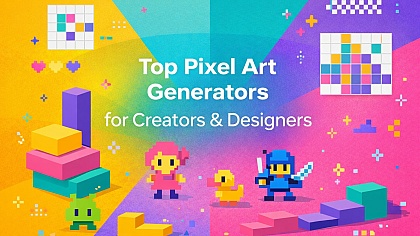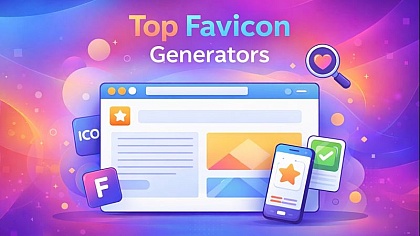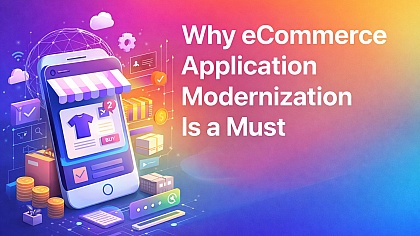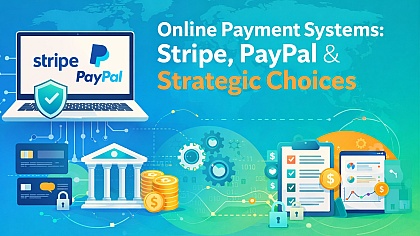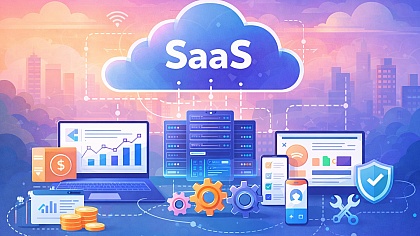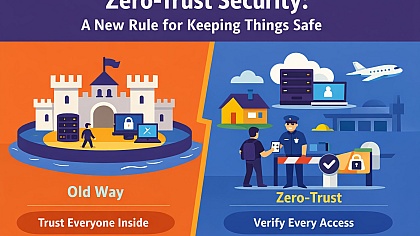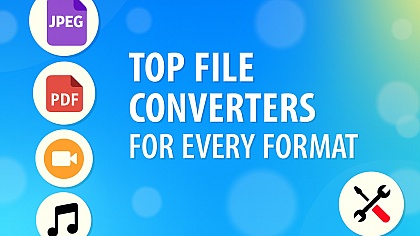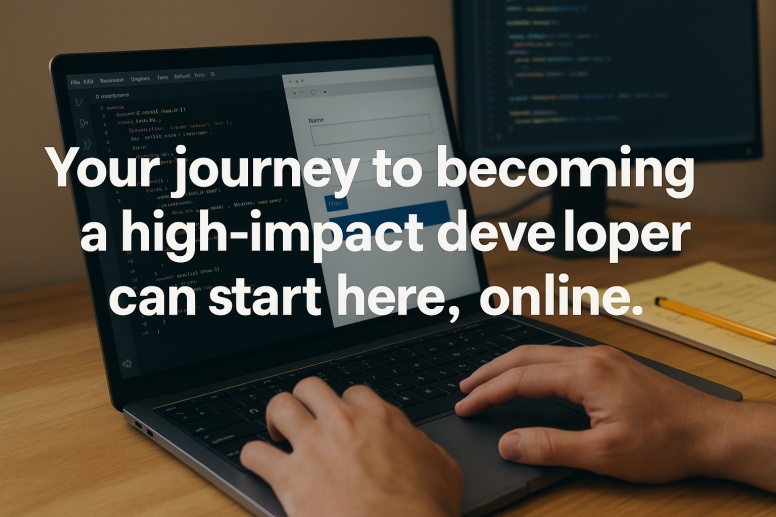
10 Best Full Stack Courses Online to Launch Your Tech Career
Your journey to becoming a high-impact developer can start here, online.
Full-stack developers are more than just programmers in today's technologically advanced environment; they are the designers of whole digital solutions. They manage everything, from creating slick user interfaces to creating reliable server logic and database administration, and businesses are paying attention. Since 2015, the need for full-stack engineers has increased by 35% yearly, according to LinkedIn, making it one of the most sought-after positions in the worldwide tech sector.
The good news? You don’t need to attend an expensive university or relocate for an on-campus bootcamp to join this career path. With the right online full-stack development course, you can build real-world skills, create end-to-end applications, and gain the confidence to bring your own ideas to life right from your laptop. Whether you're starting from scratch or pivoting from another field, this blog will help you explore the top online programs that can take you from beginner to job-ready, one project at a time.
Before You Pick a Course: What Makes a Full Stack Program Truly Worth It?
Not all full-stack programs are created equal. Some offer lectures without projects. Others boast about certificates but lack practical training. Here's what really matters:
-
Project-First Learning: Courses that teach you to build real applications, not just tutorials.
-
Full Stack Depth: You should learn frontend (HTML, CSS, JavaScript, React), backend (Node.js, Python, Django, etc.), databases, version control, and deployment.
-
Structured Yet Flexible: Some learners need mentor support, while others thrive in self-paced formats.
-
Career Readiness: Resume building, mock interviews, GitHub portfolio guidance, and placement help.
You don't need 10 certifications. You need one great course and consistent effort.
10 Best Online Full Stack Developer Courses
Here are the best full-stack development courses in online mode, carefully curated for aspiring developers. Whether you're starting from scratch or upskilling, these programs help you build, code, and launch real projects confidently.
1. Hack Reactor Remote
An elite bootcamp with an acceptance rate under 15%, Hack Reactor is best known for its JavaScript-heavy curriculum and rigorous approach. It simulates a real dev team environment and emphasises writing clean, production-level code.
Best for: Learners who thrive in a full-time, high-pressure, job-focused setting.
2. CS50W (Harvard Web Programming)
A follow-up to Harvard's renowned CS50, this course delves deeply into Python, Django, JavaScript, and database integration. It's demanding, academic, and project-driven.
Best for: Learners who want Ivy League-level depth without the cost.
3. NxtWave Full Stack Course
NxtWave stands out for one reason: it knows what students and freshers need. Unlike many global programs, NxtWave offers structured, beginner-friendly modules that evolve into full-fledged real-world projects in the Java and MERN stack (MongoDB, Express.js, React, Node.js).
It helps close the knowledge gap between education and work by emphasising career services, project creation, and attitude enhancement. Learners get access to placement support, resume reviews, and mock interviews with real hiring partners.
Why it's special:
-
Offers lectures in vernacular language and a flexible learning pace.
-
Includes coding challenges, mini projects, and hackathons.
-
Strong placement network with 2000+ hiring partners.
It is one of the best full-stack courses online and is Ideal for college students, even for non-CS graduates and individuals just starting their careers who need structure, assistance, and reliable outcomes.
4. Full Stack Web Development by edX
edX offers a variety of full-stack development paths from institutions like MIT, Harvard, and UC Berkeley. These programs are academically rigorous, structured, and globally recognised.
Ideal for students seeking flexible online learning options and institutional trustworthiness.
5. The Odin Project
Run by a passionate developer community, The Odin Project is one of the most comprehensive, free, full-stack curricula available online. It focuses heavily on projects, Git/GitHub, and peer collaboration.
Suitable for self-motivated students seeking a free, superior route.
6. freeCodeCamp Full Stack Curriculum
With over 40,000 hours of coding content, freeCodeCamp offers certifications in responsive design, JavaScript algorithms, APIs, databases, and more. It's entirely free and focused on hands-on challenges and real-world projects.
Best suited for learners who enjoy structured challenges and an active support forum.
7. BloomTech
Previously known as Lambda School, BloomTech offers an income-share agreement model, allowing you to learn now and pay later after securing a job. The curriculum includes full-stack development, mock interviews, and real-time team projects.
It is among the best full-stack courses online for those looking for a career change, accountability, and job guarantees.
8. Scodex Full Stack Developer Course
Scodex combines curated learning paths with AI-driven mentoring and project feedback. It helps learners track their coding performance and adjust learning accordingly.
Ideal for students who wish to receive insightful feedback and flexible instruction without having to pay a lot for boot camp.
9. OpenClassrooms Full Stack Path
This platform offers mentor-supported paths where learners build capstone projects and receive individual feedback. The courses cover everything from HTML to deployment and soft skills like communication.
Best for learners who want feedback, structure, and a clear capstone-driven roadmap.
10. LinkedIn Learning
HTML, JavaScript, APIs, databases, and version control are all covered in the basic to advanced video courses on the "Become a Full Stack Developer" path. It's ideal for professionals seeking upskilling with certification.
Best suited for professionals seeking flexible, modular learning.
Course Fees & Payment Structures
| Course | Pricing Structure | Cost / Details |
|---|---|---|
| Hack Reactor Remote | One-time tuition + scholarships/financing | $19,480 tuition; merit scholarships (~$2,500); financing options available. |
| CS50W (Harvard Web Programming) | Free audit; paid certificate | Free to audit; Verified certificate costs $199–299 |
| NxtWave | Prepaid and Postpaid options | ₹90,000 for Prepaid option; or Postpaid option with ₹49,000 as upfront + 12% of CTC post-placement (₹16,000 scholarships available for a limited time) |
| edX – IBM Full Stack Development | Program fee | ~$713.70 total for the professional certificate. |
| The Odin Project | Completely free | 100% open-source, no cost. |
| freeCodeCamp Full Stack | Completely free | 100% nonprofit-funded, no cost. |
| BloomTech (formerly Lambda School) | ISA, upfront, or instalment | US upfront: $13,500–$ 19,000; international: $12,000; ISA and instalment options available. |
| Scodex Full Stack Developer Course | Fixed tuition needs to be contacted by the provider | Contact the provider directly for pricing. |
| OpenClassrooms Full Stack Path | Monthly subscription with mentorship | €300–500/month for ~6 months. |
| LinkedIn Learning – Full Stack Path | Subscription-based | ~$29.99/month (or ~₹2,200/month) after 1-month free trial. |
What to Look for in the Best Full Stack Courses Online?
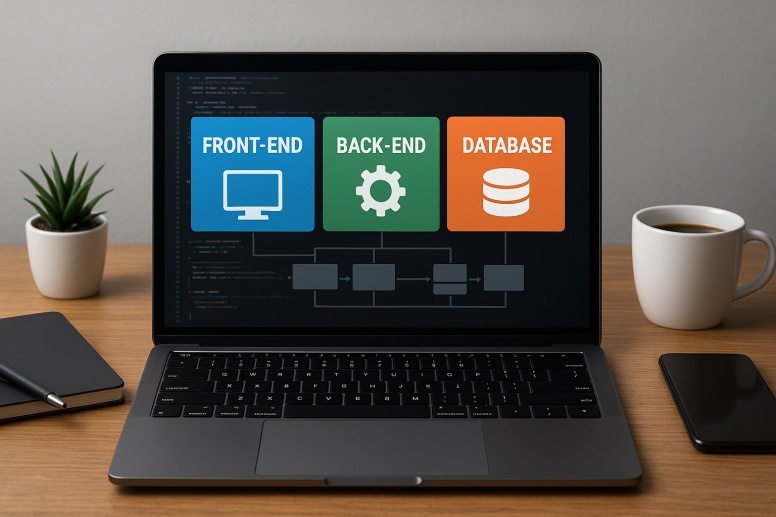
Choosing an online course is a significant decision, especially when it involves acquiring a high-value skill like full-stack development. Not all courses are created equal. The right program can fast-track your growth, while the wrong one can waste your time and energy.
Here’s what truly matters when evaluating the best full-stack courses online:
Real-World, Project-Based Learning
Theory alone won’t get you hired. The best courses, like those offered by Yellow Tail Tech, prioritise hands-on learning through real-world projects that mirror what developers do on the job, building web apps, integrating APIs, working with databases, and deploying to the cloud. These projects become the foundation of your portfolio.
Updated Curriculum
Technology evolves fast. Your course should teach the skills and tools that companies actually use today, such as React, Node.js, Express, MongoDB, Git, Docker, and cloud platforms. Outdated tech means outdated skills.
Complete Full Stack Coverage
An actual full-stack developer can build both front-end interfaces and back-end systems. Make sure the course covers:
-
Frontend: HTML, CSS, JavaScript, modern frameworks (React/Vue)
-
Backend: Node.js, Django, or similar
-
Databases: SQL, MongoDB
-
Version control: Git, GitHub
-
Deployment: Netlify, Vercel, or cloud hosting (AWS)
Structured Learning Path
Look for a curriculum that progresses from basics to advanced topics in a step-by-step manner. Courses with well-defined modules, checkpoints, and skill tracks help you stay motivated and focused.
Mentorship & Support
Learning online doesn’t mean learning alone. A great course provides access to mentors, live Q&A sessions, and an active community where you can ask questions and receive feedback. This support makes a big difference, especially when you're stuck.
Career Guidance & Placement Help
If your goal is to get hired, choose a course that helps you beyond coding. The best platforms offer:
-
Resume & LinkedIn optimisation
-
Mock interviews
-
GitHub portfolio reviews
-
Hiring partner networks or job referrals
Flexibility Without Losing Structure
Online learning should fit your schedule, but not at the cost of accountability. Courses that combine self-paced content with deadlines, live sessions, or mentor check-ins provide the best of both worlds.
Credibility & Community
Check who’s behind the course. Is it backed by a reputable university, a proven bootcamp, or experienced instructors? Additionally, a strong peer community can provide collaboration, support, and even job opportunities.
Certification (Optional but Useful)
While many employers care more about skills than certificates, having one from a recognised platform (like Harvard, edX, or NxtWave) can boost your profile, especially if you're early in your career or switching fields.
ROI: Value for Money
Free platforms can teach you a lot. But if you’re paying, make sure you’re getting value, personalised support, real projects, job help, and up-to-date content. Don’t just chase cheap; invest in quality.
Which Path Fits Your Learning Style?
| Learning Style | Recommended Platforms |
|---|---|
| Need mentorship + structure | OpenClassrooms, NxtWave |
| Short on time but want job skills | LinkedIn Learning, Scodex |
| Love collaboration | The Odin Project, freeCodeCamp |
| Prefer academic learning | CS50W (Harvard), edX |
| Looking for outcomes + support | NxtWave, BloomTech |
Beyond the Course: What Makes You Job-Ready?
-
Build a strong GitHub portfolio.
-
Document your projects and code with clarity and precision.
-
Learn soft skills: communication, teamwork, and time management.
-
Participate in mock interviews, engage in forums, and contribute to open-source projects.
The course is your foundation, but your practice is the real game-changer.
We have had a look at some of the best full-stack courses online from free, community-driven platforms like The Odin Project and freeCodeCamp to structured programs like NxtWave, edX, and Hack Reactor. Each course offers a different path, catering to various learning styles, time commitments, and career goals.
The goal is to give you options to help you identify which format truly aligns with your needs, whether that’s mentorship, flexibility, academic depth, or real-world outcomes. Full-stack development is a skill that pays off with dedication, and the right course can accelerate that journey.
Frequently Asked Questions
1. Does becoming a full-stack developer require a degree in computer science?
No, you don’t. Many full-stack developers come from non-tech backgrounds. What matters more is hands-on experience, a strong portfolio, and understanding how to build complete applications. Online classes will teach you everything you need to know to get started.
2. How important is it to learn deployment as part of a full-stack course?
Very important. Knowing how to host your app on the web (using tools like Netlify, Vercel, or AWS) demonstrates your ability to take a project from start to finish, a skill that employers value highly.
3. Can I become job-ready with just one full-stack course?
Yes, but only if the course is comprehensive and you stay consistent. A great course will guide you, but your practice, personal projects, and continuous learning will genuinely make you job-ready.
4. What if I don’t like JavaScript? Can I still become a full-stack developer?
Yes. While JavaScript is the most common choice, full-stack development can also be done with Python (Django, Flask), Ruby (Rails), or even PHP. Choose a stack that suits your interests, but know that JavaScript is widely used and often required in jobs.
5. Are free courses really enough to get hired?
They can be, especially if you’re disciplined and build strong projects. Free platforms like The Odin Project or freeCodeCamp offer excellent content, but you’ll need to push yourself more without structured support or career services.
6. What’s the difference between full-stack and frontend/backend development?
Frontend deals with what users see and do. Backend handles server logic, databases, and APIs. Full-stack means you can build complete apps end-to-end, which makes you more versatile.
7. Do I need to be good at math to learn full-stack development?
Not at all. It is more crucial to have fundamental reasoning and problem-solving abilities than complex math. Most web development tasks don't require complex mathematics.
8. Can I switch careers to full-stack development without prior coding experience?
Yes. Many full-stack developers started with zero coding background. The key is to choose a beginner-friendly course, commit to regular time, and build real projects to showcase your skills.
